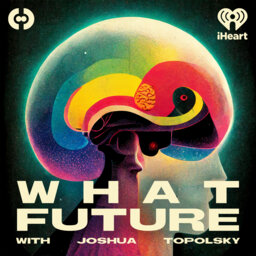Apple's Virtual Reality Distortion Field, with Mark Gurman
Apple is going to do something that none of us could have predicted. The company is about to announce its most ambitious product in years: a headset that looks like ski goggles that allows you to experience both virtual and augmented reality. How do we know this? Because of our guest Mark Gurman — a Bloomberg reporter and master of the Apple scoop. On this episode, Gurman takes us deep inside the bunker, reveals the inner turmoil that led to this device, and ponders what the future might hold for the world's most valuable company. Discussed: laser surgery, cartoon eyes, Steve Jobs hating the internet.
 What Future with Joshua Topolsky
What Future with Joshua Topolsky


